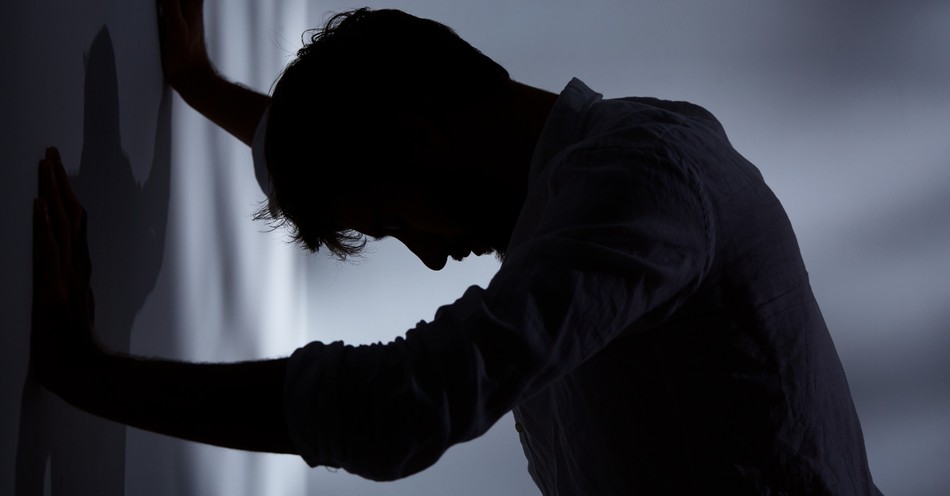Since the pandemic, American adults are behaving badly.
“Bad behavior of all kinds—everything from rudeness and carelessness to physical violence—has increased,” Olga Khazan recently wrote at The Atlantic. “Americans are driving more recklessly, crashing their cars and killing pedestrians at higher rates. Early 2021 saw the highest number of ‘unruly passenger’ incidents ever, according to the FAA.”
Plenty of viral videos, especially but not exclusively of passengers on airplanes and in airports, affirm Khazan’s description. Her question is a good one: Why are people acting so weird?
An obvious answer is that the social isolation of the last few years has taken a real toll on our mental health and well-being. Studies do show that prolonged isolation often does lead to anti-social behavior. “When we become untethered,” one Harvard sociologist told Khazan, “we tend to prioritize our own private interests over those of others or the public.”
It’s also not a secret that, to deal with the increased stress and isolation, more Americans have turned to destructive coping mechanisms. Per capita, we’re drinking more. Drug overdoses, despite a two-year decline pre-pandemic, have spiked by nearly 30% since 2019. Even crime—including break-ins, robberies and homicides—has increased, as the pandemic has eased. In the article, Khazan quoted a University of Missouri criminologist who thinks that we’ve developed “a generalized sense that the rules simply don’t apply.”
Everything about the pandemic, of course, increased individual and collective anxiety, isolation, and economic uncertainty. However, the coarsening of the American public was already in place. You might call it a “pre-existing condition,” made worse by COVID-19.
In his book A Free People’s Suicide, Os Guinness argues that America has become a “cut-flower” society. Though we still have the trappings of liberty and morality, he argues, we are cut off from its root. Just as with flowers, there’s a lag time between when a civilization is cut from its roots and when it dies. Even so, by cutting ourselves off from a shared Judeo-Christian framework, we are starving ourselves. The pandemic didn’t cause this, but it has worsened and exposed it.
G.K. Chesterton described something similar in The Everlasting Man. Sometimes, he argued, it’s the solutions we invent that unmake us, not the crises we are attempting to endure.
Pessimism is not in being tired of evil but in being tired of good. Despair does not lie in being weary of suffering, but in being weary of joy. It is when for some reason or other the good things in a society no longer work that the society begins to decline; when its food does not feed, when its cures do not cure, when its blessings refuse to bless.
The widespread cultural breakdown we see around us cannot be explained by a mere loosening of morals, or the wrong political party being in power, a pandemic, or our response to it. What we are seeing is the catastrophic emptiness when life is built on the wrong foundation.
While our distractions keep us busy—Americans streamed a mind-blowing 15 million years’ worth of digital content in 2021, according to analytics company Nielsen—but are failing to satisfy. The American dream has been written and re-written and altered completely but remains out of reach. It’s not clear what can hold us together anymore.
A critical question for Christians is whether there is anything we can do about it. A critical answer to that question is to remember that we aren’t the first to find ourselves in a society unmoored from morality and meaning.
If public behavior today is “weird,” public behavior at the start of the 18th century was downright shocking. In London, it was not unusual to come across bear fighting and heads on pikes. Crime and prostitution were endemic, as was poverty, and churches sat empty.
According to a Christianity Today article about that time period, “only five or six members of Parliament even went to church,” and those churches often peddled nothing more than state-sponsored religiosity.
Yet, unknown to most, God was moving. The revivals led by John and Charles Wesley and their friend George Whitefield proved to be a match in a powder keg, sparking a massive return to Christian faithfulness and care in their own time. That revitalized Church set the table for William Wilberforce’s “reformation of manners and morals,” a movement for human rights that would change England and the world forever.
The secret, according to John Wesley, was realizing what really is at the center of human flourishing. “How a sinner may be justified before God, the Lord and Judge of all, is a question of no common importance to every child of man,” John Wesley argued. “It contains the foundations of all our hope, inasmuch as while we are at enmity with God, there can be no true peace, no solid joy, either in time or in eternity.”
Those words are no less true in our times. When public morality is unhinged, Christians ought not lose hope. Who knows whether God is poised to bring another Christian revival as during the time of the Wesleys and Whitefield? Either way, our part is to reject the spirit of the age, embrace what is good and true, treat everyone as if they are made in the image of God, and speak boldly when we can.
Publication date: June 8, 2022
Photo courtesy: ©Getty Images/KatarzynaBialasiewicz
John Stonestreet is President of the Colson Center for Christian Worldview, and radio host of BreakPoint, a daily national radio program providing thought-provoking commentaries on current events and life issues from a biblical worldview. John holds degrees from Trinity Evangelical Divinity School (IL) and Bryan College (TN), and is the co-author of Making Sense of Your World: A Biblical Worldview.
The views expressed in this commentary do not necessarily reflect those of CrosswalkHeadlines.
BreakPoint is a program of the Colson Center for Christian Worldview. BreakPoint commentaries offer incisive content people can't find anywhere else; content that cuts through the fog of relativism and the news cycle with truth and compassion. Founded by Chuck Colson (1931 – 2012) in 1991 as a daily radio broadcast, BreakPoint provides a Christian perspective on today's news and trends. Today, you can get it in written and a variety of audio formats: on the web, the radio, or your favorite podcast app on the go.




